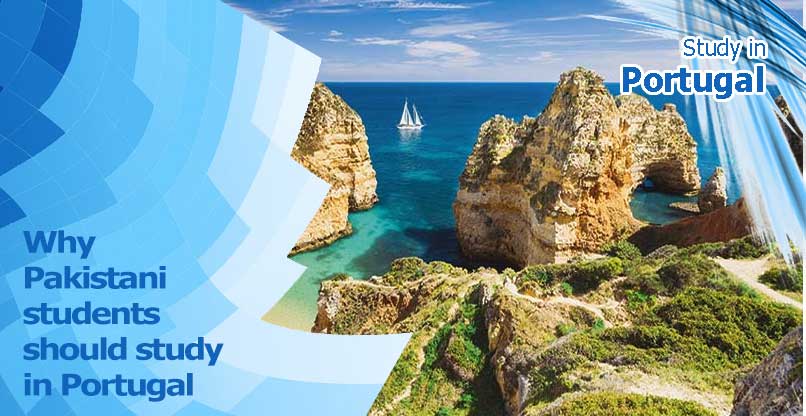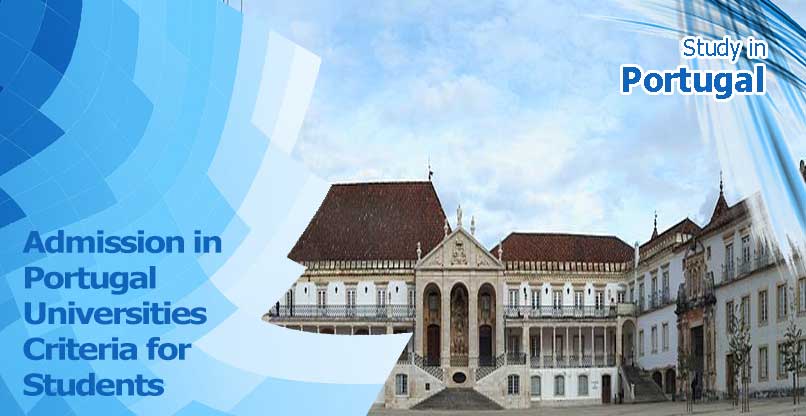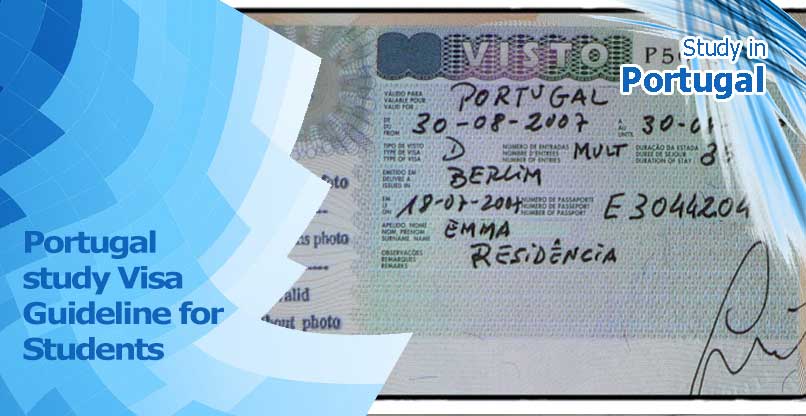-
Why Portugal
-
Living and Study Cost in Portugal
-
Admision Criteria of Portugal for Pakistani Students
-
Portugal Study Visa Guideline for Pakistani Students
-
Pakistani Students Accommadation Options in Portugal
Why Pakistani students Should Study In Portugal?

The quality of education in Portugal is equivalent to that acquired in developed western countries such as UK, USA, Austria and Sweden. As per the calculations of PISA (Programme for International Student Assessment) in 2015, on average a student studying in Portugal has higher IQ level and conceptual base. Although, it is geographically small country but economically and academically developed. The study cost in Portugal is cheaper than any other European country. Portugal also offer scholarships, full funded Portugal scholarships to the international students, so that they can come to their country for higher education. If you have a limited budget for living but aspire to attain high quality education, then Portugal is the right choice for you.
Average Living and study Cost in Portugal for Students:

In Portugal on average the tuition fee costs is around $1,500 USD per year and living expenditure is almost 600-800∈ per month.
Minimum Wage Per Month in Portugal for Students:
The minimum salary per month is around 860 Euros and based on your skills you can earn more. Portugal is a developed country and employment rate is high there. The students will not find it difficult to attain part time jobs.
Affordable standard of living in Portugal:
The quality of living in Portugal is manageable even if you earn small income. On total amount of $1,700 a month you can buy groceries, rent an apartment, comfort yourself with required facilities and travel. In fact the standard of living in Portugal is said to be least expensive in comparison to other European countries.
The ECTS:
The International students studying in Portugal have option to gain ECTS (European Credit Transfer System) through which the students can transfer their credits and study in any other University of Europe if they wish to move from Portugal to any other European Country. This system was introduced specifically for facility of international students.
Variety of Degrees and Courses.
The oldest University of Portugal is dated back in 1290AD. The higher education system of Portugal has been going through up gradation and amendment since then. There are multitude of degree programmes and courses being offered in Universities of Portugal.
Security and Stability Factor:
The degrees attained from Portugal are approved worldwide. From career point of view and professionally the candidates are secure. In addition, talking about the security and law and order factor, Portugal is one of the safest countries of Europe. There are lesser cases racism and misconduct towards foreigners being experienced in Portugal. It is one of the reasons Portugal being counted as favorite European study abroad destination.
Admission Documents for Portugal Universities:

The requirements for admissions in Portugal might differ from University to University but mostly the Universities in Portugal require following documents:
-
A complete application form
-
A certification/diploma stating that you have completed the relevant high school education/Bachelor’s/Master’s degree
-
Transcripts of academic records
-
A motivational letter stating why you want to attend the university
-
For a Bachelor’s, you will need to have passed the university entrance exam
-
For some degrees you will also require a portfolio of your work
-
Proof of payment of the application fee (50 EUR)
Best Universities in Portugal 2024:
-
University of Lisbon
-
Portugal Lisbon
-
University of Porto
-
University of Coimbra
-
University of Nova de Lisboa
-
University of Minho
-
Aveiro University
-
Universidade do Algarve
-
University of Evora
-
University of Beira Interior
-
University of Tras-os-Montes & Alto Douro
Deadline For Admissions in Portugal 2024:
For the students planning to study abroad in Portugalees Universities can apply, the admission sessions are divided into three phases.
-
April-May
-
June-July
-
August- September
NOTE:-The admissions deadlines are different in different universities. You better keep checking admission deadline of your desired University to avoid delay and missing your chance.
Perquisites of Visa after Getting Accepted by Portugal University:

-
Medical Certificate
-
Bank Account Proving Your Living and Study Expenditures Will Be Covered
-
Language Proficiency Test
-
Criminal Record Certificate
-
Acceptance Letter from Portugalees University
-
Proof of Paid tution Fee
Student Cities in Portugal:
-
Lisbon
-
Porto
-
Coimbra
-
Braga
-
Lagos
-
Albufeira
-
Aveiro Municipality
-
Faro
-
Cascais
-
Tomar
Student Accommodations in Portugal:

A rough estimate of total cost of living including eating and travelling is around 500 to 850 EUR. The types of accommodations for students are as follows:
-
Shared Rooms ( around 235 EU)
-
Single Room ( 300 EU)
-
One Room Apartment (350 EU)
-
Apartment with Parking(750 EU)
-
Flat (650 EU)
-
Dorms
-
Hostels
-
Paying Guests
Part Time Jobs for Students in Portugal:
-
Online Free Lancing
-
Content Writing
-
Translator
-
English language Tutor for Kids
-
Chefs or Waiter in Restaurants
-
Salesman
Types of Visas for Studying in Portugal:
-
Transit and short-term Schengen stay visa (visa C) are for students who are staying there for short term courses of 6 months to a ear time span. In this visa two entries are allowed
-
Schengen National 'Long-stay' visa (type D) are for the students who are going to study there for a course of more than a year time span.
Average Tution Fee:
Depending upon the eligibility and talent of students a few private Universities in Portugal even offer 100% free of cost lectures.
-
On Average For the Bachelors and Master programmes: between 950 and 1,250 EUR/year
-
On Average For the PhD courses: fees can lead to approximately 2,500 - 3,000 EUR per academic year
-
An exception is Coimbra city, where tuition fees are smaller, around 700 EUR/year
A Variety of Courses:
The courses for PhD, Masters and Graduation programmes are available in Portugalees Universities for all fields such as:
-
Agriculture, horticulture and veterinary studies
-
Area studies, languages and literature
-
Arts and crafts
-
Business and management
-
Construction
-
Education
-
Engineering and production
-
Environment
-
Family and personal care services
-
Food, leisure and hospitality
-
Humanities
-
Information technology
-
Librarianship
-
Media studies
-
Medicine and health studies
-
Science
-
Social sciences
-
Teaching

.gif)
















